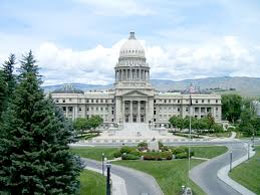- News
- Horse Racing
- Racing Preview
- AQHA Racing Challenge
- Breeding
- Sales
- Quick Stakes Results
- Detail Race Results
- Qualifiers
- Leader Board
- Leading Sires
- Videos
- Auction Leaders
- Q-Racing
Streaming Video

BOISE, IDJUNE 24, 2018Election officials in Idaho this week said a proposal to legalize "historical horse racing" in the State appears to have secured enough verifiable signatures to qualify for the November ballot.
It will now be up to the State's election office to determine if the signatures meet legislative district requirements.
According to a statement on Friday from the Idaho Secretary of State Lawerence Denney, county clerks across the state have unofficially verified roughly 61,400 signatures that organizers submitted this year. Under Idaho rules the signatures will become official when they are delivered to the Secretary of State's office.
At least 56,192 signatures were needed to qualify and those signatures must also come from 6 percent of the registered voters in at least 18 of Idaho's 35 legislative districts. The Idaho Secretary of State's office has until mid-July to determine if that requirements were met.
Todd Dvorak, a spokesman for the Save Idaho Horse Racing campaign with the marketing firm Strategies 360, said the campaign believes the initiative qualified in 22 legislative districts, well above the 18-district requirement.
Historical horse racing, also known as "instant racing terminals," were legal in Idhao between 2013 and 2015, but the state's lawmakers banned them after deciding they resembled illegal slot machines.
The repeal caused outcries from Treasure Valley Racing at Les Bois Park in Boise as well as other historical horse racing advocates in the state who argue the profitable instant racing terminals are needed to keep the state's horse racing industry alive.
The Coeur d'Alene Tribe is the strongest opponent against legalizing historical racing in the state. The tribe has an incentive to keep the machines out of Idaho because it currently has a monopoly on video gambling.

 Newsletters
Newsletters Facebook
Facebook